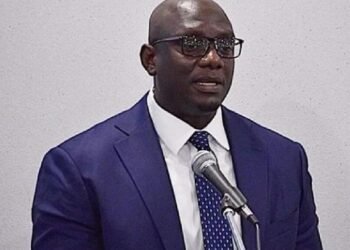The Member of Parliament for Tamale South, Haruna Iddrisu, has revealed that the agreement between the Government and the International Monetary Fund (IMF) is an overambitious one.
According to him, the agreement is certainly going to have dire economic consequences not only for the current government, but for subsequent governments as well. He highlighted that the agreement may be potentially disruptive to the plans of whoever takes over power in 2024, as the programme lasts for three years.
“It appears to me that the IMF ECF that the government of Nana Addo Dankwah Akufo-Addo and Bawumia have signed is an overambitious one. It is overambitious in the sense that it is going to affect the fiscal space that may be available to a successor government. It may be John Mahama government and NDC government tomorrow.”
Haruna Iddrisu
Mr Iddrisu explained that inherent in the agreement is that there shall be no non-concessional borrowing between now and 2027. Additionally, he stated that the IMF conditions states that shall equally be no access to non-concessionary borrowing, which could be detrimental for future governments
“So, it means that for concessional financing, government may not be able to borrow between now and 2027… That is what excessive and reckless borrowing does to an economy apart from the debilitating effect on the private sector, on businesses, on employment.”
Haruna Iddrisu
The former minority leader’s comments followed the IMF’s approval of Ghana’s programme request seeking a $3 billion to stabilize the economy of the country.
The IMF demanded that as part of prudent debt management measures, government tracks debt issuance by SOEs and public SPVs, in limiting and monitoring collateralized debt issuance, in strictly limiting borrowing on non-concessional terms, and in ensuring that debt payments are made on time.
Developing private sector amid IMF conditionalities
Prior to this, the director of the Institute of Statistical, Social and Economic Research (ISSER) of the University of Ghana, Professor Peter Quartey, has called on the government to grow the private sector of the economy in order to employ more people.
He indicated that the $ 3 billion bailout approved for Ghana by the International Monetary Fund (IMF) on Wednesday, May 17 will come with some conditionalities including a freeze on employment in the public sector.
This, he explained, will mean that more people will be needing jobs in the private sector. Owing to this, Prof Quartey emphasized that this must embolden government to focus on empowering the private sector players to expand their businesses to employ more people.
Professor Quartey highlighted that every conditionality that would come along with the programme is something Ghana prepared and agreed to.
“The programme will come with certain conditionalities but these are not conditions that have been imposed on us, let us make that point, every conditionality you see is something we agreed to undertake.”
Prof Peter Quartey
The IMF has in the interim congratulated on the signed agreement. However, the IMF in a statement stated that Ghana breached the Debt Sustainability Analysis (DSA) thresholds which led the country into debt distress. ]
In a statement titled ‘Request for an arrangement under the Extended Credit Facility Programme’, the Fund stated that Ghana is in debt distress. Additionally, it noted that that the country’s debt level is also unsustainable.
“Given the ongoing debt restructuring and large and protracted breaches to the Debt Sustainability Analysis (DSA) thresholds, Ghana is in debt distress, and debt is assessed as unsustainable”.
IMF
IMF further described Ghana’s fiscal policy as being characterised by overspending, structurally weak domestic revenue mobilisation.
READ ALSO: The Foundation Of Assin North MP’s Presence In Parliament Was Weak- Nimako























